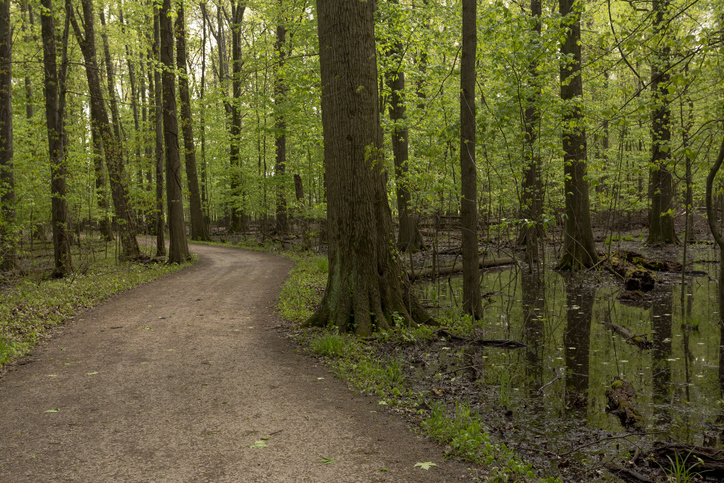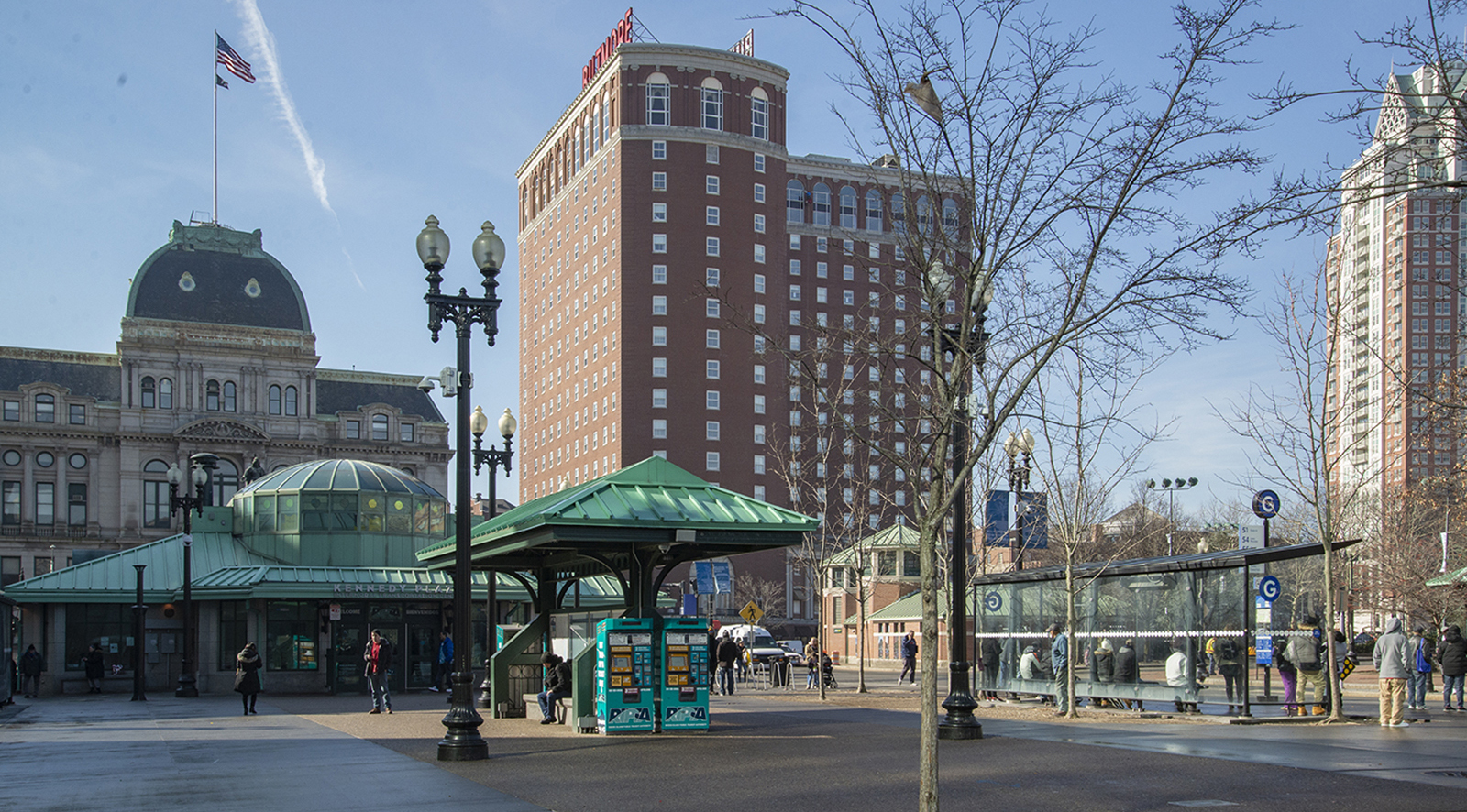Rhode Island Public Schools Flunk Recycling Test
December 23, 2011
The amount of recyclables, most notably copy paper and plastic bottles, carelessly tossed in the trash by Rhode Island’s public schools and needlessly buried in the ever-shrinking Central Landfill is appalling.
Homeowners, it seems, are the only ones expected — or encouraged — to follow the state’s mandatory recycling laws. Due to ignorance and lack of enforcement, most Rhode Island residents who live in apartment buildings are essentially forced not to recycle. Few restaurants and many other business fail to recycle properly — a lack of accountability allows the problem to continue.
It’s a shame so few schools in the state’s 36 public school districts offer students much in the way of recycling or composting education. Far too many districts make no attempt to recycle. Some even use the blue and green bins as trash buckets.
Providence’s Nathanael Greene Middle School, for example, lines these clearly marked recycling bins with plastic bags labeled with a “City of Providence” seal, according to longtime school librarian Sarah Morenon. These bags end up in a school Dumpster.
“We’re teaching the students that the blue and green bins mean nothing,” Morenon said. “Most rooms only have green and blue bins for trash. The metal trash bins have disappeared.”
Rhode Island’s 282 public schools generate a massive amount of recyclable material — much of which is never used again, as little of it is separated before it ends up in the back of a truck.
“There’s 40 schools in Providence and huge palettes of paper,” Morenon said. “Almost none of it gets recycled.”
Morenon should know; she’s been the Nathanael Greene Middle School’s de facto recycling coordinator since the mid-1990s. She briefly tried being responsible for the entire building, but with 900-plus students and 80-plus teachers the task would make anyone neurotic. She now only obsesses about recycling properly in the school’s library.
She brings home the bottles and cans she collects in blue bins and adds them to the stash she leaves curbside. She dumps the paper she collects in the library’s green bins in one of the six green totes the school provides for paper recycling. Morenon often finds Styrofoam coffee cups, plastic bottles and other misplaced items in these totes, which collect only a fraction of the recyclable paper generated at the Chalkstone Avenue school.
“The importance of recycling needs to be institutionalized,” Morenon said. “It needs to be part of the school’s culture. It needs to be part of the curriculum … part of the science unit early on in education.”
It’s not. Most likely because it doesn’t appear on a standardized test. This lack of recycling awareness and missed teaching opportunity, however, isn’t isolated to the Nathanael Greene Middle School. It’s a problem statewide, despite the fact that in 1986 Rhode Island became the first state to pass mandatory recycling legislation.
The state Department of Elementary and Secondary Education has no system in place to monitor the recycling efforts of Rhode Island’s 36 school districts or offer guidance on how to do it. That responsibility falls to each district, according to Elliot Krieger, spokesman for the commissioner’s office.
New department regulations do require recycling during school construction. For example, “all new construction and major reconstruction projects shall meet applicable local ordinances for recycling space and provide space within the building that is dedicated to the separation, collection, and storage of materials for recycling, including, at a minimum, paper (white ledger and mixed), cardboard, glass, plastics, aluminum cans, and metals,” according to regulation 1.04-3 Miscellaneous Construction Requirements.
Meanwhile, shoddy recycling practices continue at the state’s many old schools that haven’t experienced substantial renovations during the past four years.
At last month’s Sustainable School Summit, Education Commissioner Deborah Gist addressed the attendees. She said, “Sustainable schools, or green schools, are excellent environments for students and great investments for our communities. Green schools provide plenty of light and excellent air circulation and climate control. They are high-quality learning environments. Green schools save taxpayer dollars — through economies during construction and through long-term savings on energy and utility costs. Green schools can also serve as models for student explorations in science, ecology, engineering and other career and technical fields.”
This exploration in science and ecology, and teaching students the importance of recycling, shouldn’t be the sole domain of fancy, LEED-certified, newly built or remodeled public schools. These practices would work just as well at the 82-year-old Nathanael Greene Middle School.
Frank Carini is the editor of ecoRI News.
Categories
Join the Discussion
View CommentsRecent Comments
Leave a Reply
Your support keeps our reporters on the environmental beat.
Reader support is at the core of our nonprofit news model. Together, we can keep the environment in the headlines.
We use cookies to improve your experience and deliver personalized content. View Cookie Settings




I think if you find some grant money to go to school programs, you could get more help from the students or teachers in our public schools. For example I am about 450 dollars short from getting some great technology equipment for my class. But I cannot because all funds have been consumed by mandated programs that ignore the other needs of our public school children.
One person has the power to nudge decision makers towards the right direction. At the last few companies I've worked for, I initiated recycling programs for paper and plastic. It only cost my employer $15/month for weekly pick-up, however no one ever took the time to request a proposal from the waste services provider. It takes one person to step up and suggest change. We can't spend our time waiting for someone else to do something. I commend the Librarian for bringing the recycling home with her; I've done this at numerous places! Unfortunately, it's not enough to cover up for other's poor habits. People need to comprehend the reasoning behind recycling. Businesses are not held to the same standards as residences, which isn't right. Schools should at least be the first place we start; so children have a fundamental understanding of the process.
The Environment Council of R.I. Ed Fund ran a program "Recycling in Rhode Island Schools" for many years and it was quite successful. It was funded by a grant for RIRRCorporation for about $30-35,000.00/year. The current administration of the corporation does not see this as a pay back investment so the funding for this worthwhile program as illustrated in this article has killed the effort. At several public meetings this has been brought to the governor's attention as well as in the last awards banquet sponsored by the Ed. Fund.
School across the state were graded for their programs and implementation of recycling in their buildings. Awards were given to the highest performing schools at a ceremony held at the state house annually. For many of the students this was their first exposure to the state house and receiving recognition at this level.
Considering the budget of the Resource Recovery Corporation this program seems a pittance of an investment to bring the message to schools, students and their homes as well. It was well documented that successful school programs transferred to more recycling in homes.
Recycling in many of the private and parochial schools is just as tawdry a tale. I recently met Anita Chiulli of Eco-Orchards, which offered our public schools a bio degradable compost-able plate and cup program. I understand that only Barrington's lunch program, through their lunch provider, took up the invitation to try the program. There is a missing link in the recycling and composting programs that makes it too easy to slip into disuse. We need to see programs that are currently working well in other states, simple programs for the schools to implement with the little time and labor available.
Want to enjoy a run around? Go to the http://www.rirecyclingclub.org/getstart.html for info on obtaining recycling bins for schools. They state the RI contact as Mike Messolela for classroom bins. (Mike Mesolella is the contact at RIRRC for obtaining classroom recycling bins and posters. He can also be reached at 942-1430 extension 252.) Then the fun begins. You get his extension, get sent back to the main system recording , then get sent to another extension, another recording, then one more extension recording. At that point, you get told, basically, we really have nothing in the bin department for you. It's fun to see how long this goes on.. It reminds me of an old Monty Python skit.
.
Since this article, mandatory programs have been put into place in dealing with recyclable material. However, the one problem with this is that recycling isn’t just a big deal in public schools but also in a lot of private schools. The main focus has been on improving recycling in public schools, when in fact it should be the focus of every school. This problem has sparked a need for systems to be put into place to educate students on the importance that recycling actually holds, as well as teaching them about the impacts of not recycling. In many schools, things have improved slightly in the context of producing less waste; however they have not changed, significantly, simply because a lot of students just don’t think that their one plastic bottle will actually do anything. Many and most RI public schools have purchased recycling bins as well as getting more funds to have people come and speak to the students about recycling. Although things could still be improved, there has been a huge decrease of waste produced by public schools as a result of education about it.